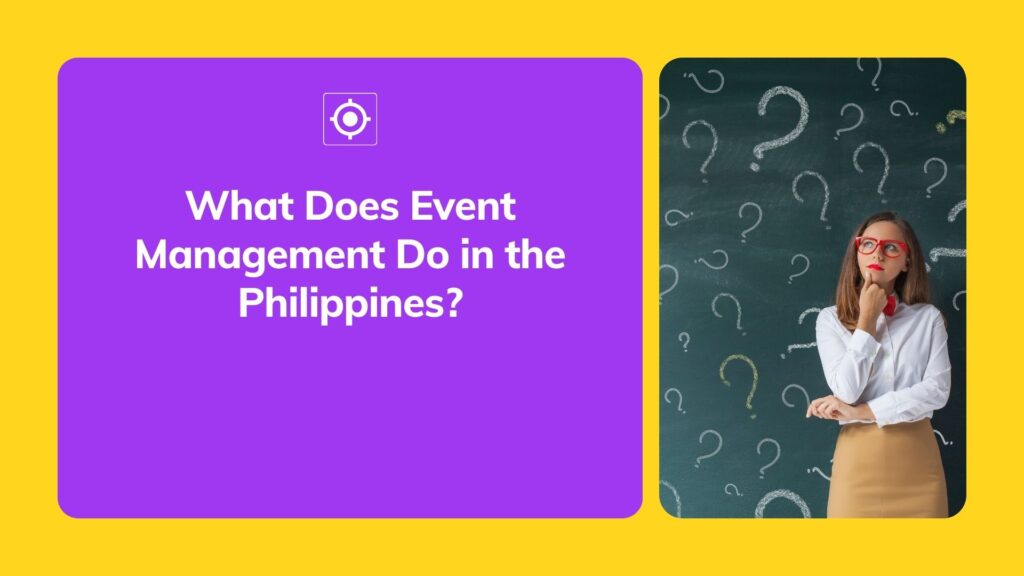
Event management in the Philippines involves much more than just coordinating logistics and executing tasks; it is a complex and multifaceted practice that combines creativity, strategic planning, and operational efficiency. It is a key discipline in pursuing business objectives, enabling cultural expression, promoting community engagement, and developing national tourism.
1. The Strategic Role of Event Management
Essentially, event management is strategic communication. In the Philippines, event professionals are designers of experience—building, designing, and producing live, virtual, and hybrid events that meet specific aims. Whether the event is to increase brand awareness, celebrate a milestone, launch a new product, or raise community awareness, it is important that it is constructed on established objectives and quantifiable outcomes.
Filipino event coordinators generally have the following responsibility:
a. Conceptualization: The act of making abstract concepts into tangible, interactive realities.
b. Project planning: Creating schedules, stakeholder communication, and ensuring that all aspects of the event are in alignment with the planned purpose.
c. Financial management: Acting within tight money limits while capturing maximum value.
d. Risk reduction: Having contingency plans for everything from weather disturbances to technical breakdowns.
2. Operational Mastery and Adaptive Execution
In the Filipino environment—where logistical challenges such as mercurial traffic, electricity outages, and last-minute changes are the standard—event planners are extremely flexible. They are not merely planners but problem solvers who can shift plans in the moment without compromising the audience experience.
Within the Philippines, there are numerous places where events may be held with a range of luxurious hotels, community gyms, outdoor parks, and complete virtual platforms available. Each context requires different knowledge and operational skills, thus making adaptability a necessary skill to have for skillful event planners within the Philippines.
3. Cultural Relevance and Human Connection
The Philippine event management is founded on an appreciation of cultural nuances and emotional connection. Events are not just activities; they are spaces where relationships are forged, stories are shared, and memories are made. Filipino event managers appreciate the role of narrative and symbolism in building meaningful and inclusive events.
For instance, a corporate event extends beyond the confines of formal presentations; it can be supplemented with performances, interactive events, or multimedia tributes that appeal to Filipino values such as bayanihan (sense of community), pagdiriwang (celebration), and pakikipagkapwa-tao (interpersonal relation).
4. Economic and Social Impact
The event sector is among the key drivers of the Philippine economy. It boosts the tourism sector through MICE (Meetings, Incentives, Conventions, and Exhibitions), creates jobs, supports small and medium enterprises (SMEs), and stimulates local economies. One event can trigger a whole chain of service providers
including caterers, sound engineers, designers, and transport operators.
Moreover, events are also platforms for lobbying, education, and social change. Governments, educational institutions, and non-governmental organizations (NGOs) utilize events to spread information, enhance civic participation, and induce behavioral changes.
5. The Human Dimension of Events
Behind each successful event is a group of professionals laboring under stress, frequently outside of office hours, overseeing dozens of pieces and ensuring each guest enjoys a seamless experience. It takes emotional intelligence, endurance, leadership, and a keen sense of detail.
There is a Filipino event professional who states:
If the tourists don’t notice us, then we’ve done our job. This behind-the-scenes achievement comes from hours of planning, practice, vendor coordination, and client meetings.
Conclusion
Essentially, event management as a Philippine art is scientific and artistic. It is the deliberate production of shared experiences intended to educate, motivate, entertain, and foster relationships among people. Although often under-appreciated in the popular imagination, event professionals have a significant impact on message acceptance, community involvement, and brand recall.
Recognizing the complete depth of work that event management does involves seeing its potential to shape perceptions, create economic stimulation, and inspire national pride—one event at a time.